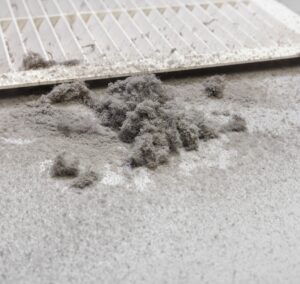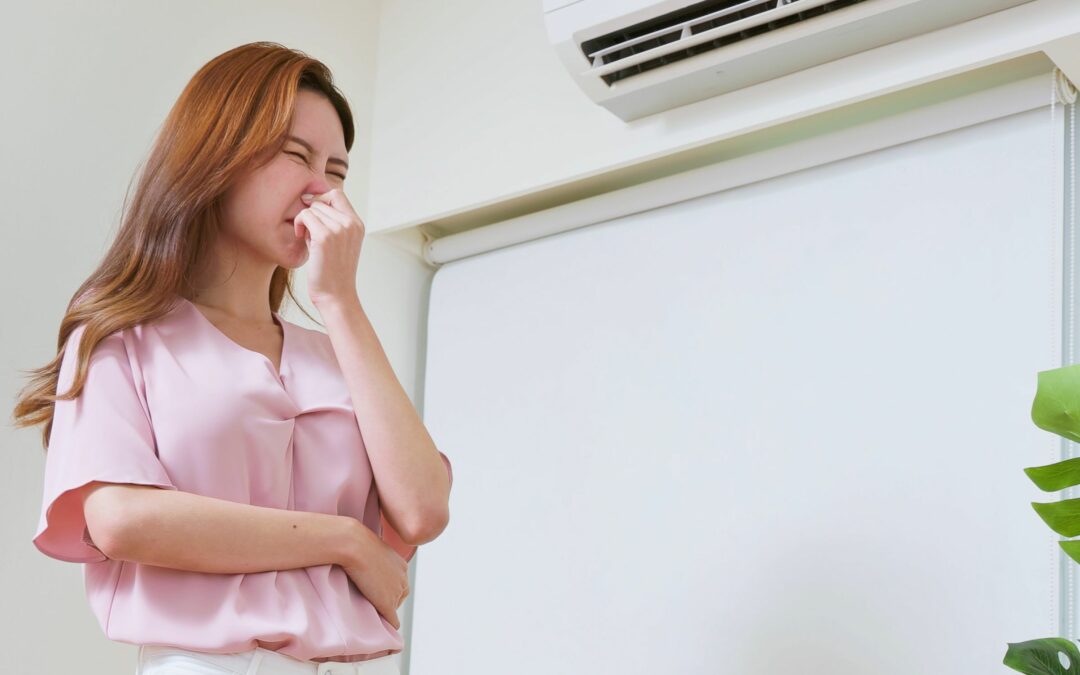As the seasons change and temperatures fluctuate, our reliance on HVAC (Heating, Ventilation, and Air Conditioning) systems to maintain a comfortable indoor environment increases. However, alongside the convenience of temperature control, HVAC systems can sometimes bring unwanted odors and smells into our homes. Whether it’s a musty smell emanating from the vents or a foul odor permeating the air, dealing with HVAC odor issues can be frustrating and unpleasant. At Same Day Air Duct Cleaning & AC Repair, we understand the importance of a fresh and comfortable indoor environment. In this comprehensive guide, we’ll explore common causes of HVAC odors and smells and provide effective solutions to keep your home smelling fresh and inviting.
Common Causes of HVAC Odor and Smell Issues
Before diving into solutions, it’s essential to understand the underlying causes of HVAC odors. By addressing these root causes, you can effectively eliminate unpleasant smells and maintain a healthy indoor environment.
Dirty Air Filters
One of the most common causes of HVAC odors is dirty or clogged air filters. Air filters play a crucial role in trapping dust, dirt, and other airborne particles, preventing them from circulating through your home. However, when air filters become saturated with debris, they can emit musty or stale odors into the air. Additionally, dirty air filters restrict airflow, reducing the efficiency of your HVAC system and increasing energy consumption.

Mold and Mildew Growth
Moisture buildup within the HVAC system can lead to the growth of mold and mildew on various components, including the evaporator coils, drip pans, and ductwork. These microbial growths can produce unpleasant odors and affect indoor air quality. Mold and mildew thrive in damp, dark environments, making the interior of HVAC systems an ideal breeding ground. In addition to emitting foul odors, mold, and mildew can also trigger allergic reactions and respiratory issues, posing health risks to occupants.
Pet Dander and Hair
Homes with pets may experience HVAC odors due to the accumulation of pet dander and hair within the system. Pets shed fur and dander continuously, and these allergens can infiltrate the HVAC system, contributing to foul smells and impacting indoor air quality. Pet dander is a common allergen that can trigger allergic reactions, asthma attacks, and other respiratory issues in sensitive individuals.
Smoke and Cooking Odors
Smoke from cigarettes, cigars, or cooking can infiltrate the HVAC system and circulate throughout the home, leaving behind lingering odors. Smoke particles can adhere to surfaces within the HVAC system, including ductwork, filters, and evaporator coils, releasing odors when the system is in operation. Lingering cooking odors can also permeate the air, creating an unpleasant indoor environment.
Chemical Off-Gassing
Newly installed HVAC systems or components may emit chemical odors as they off-gas volatile organic compounds (VOCs) from materials such as adhesives, sealants, and insulation. These chemical odors can be irritating to occupants and may pose health risks, particularly for individuals with chemical sensitivities or respiratory conditions.
Effective Solutions for HVAC Odor and Smell Issues
Now that we’ve identified the common causes of HVAC odors let’s explore effective solutions to address and mitigate these issues:
Regular Air Filter Replacement
To prevent odors caused by dirty air filters, it’s crucial to replace them regularly. Check the manufacturer’s recommendations for filter replacement intervals and opt for high-quality filters with a high MERV rating for improved air filtration. By replacing your air filters as recommended, you can maintain optimal indoor air quality and prevent the buildup of airborne contaminants and odors.
Professional Air Duct Cleaning
Schedule regular air duct cleaning services to remove dust, dirt, mold, and other contaminants from your HVAC system’s ductwork. Professional technicians can use specialized equipment and techniques to thoroughly clean the ducts and improve indoor air quality. During the cleaning process, technicians will inspect the ductwork for signs of mold, mildew, and other microbial growths, addressing any issues to prevent future odor problems.
Humidity Control
Maintain optimal indoor humidity levels to prevent mold and mildew growth. Use a dehumidifier in damp areas of your home, such as basements or bathrooms, and ensure proper ventilation to reduce moisture buildup. By controlling indoor humidity levels, you can create an environment that is inhospitable to mold and mildew, reducing the risk of foul odors and maintaining a healthy indoor environment.
Odor Neutralizers and Air Purifiers
Consider using odor-neutralizing products or air purifiers to remove unpleasant smells and improve indoor air quality. Odor-neutralizing products work by chemically neutralizing odors, eliminating foul smells at the source. Air purifiers use filtration systems to capture airborne contaminants, including odors, allergens, and VOCs, improving indoor air quality and creating a fresher environment. By incorporating odor-neutralizers and air purifiers into your home, you can effectively eliminate odors and maintain a clean and healthy indoor environment.
Routine HVAC Maintenance
Schedule annual HVAC maintenance inspections to identify and address any issues that could contribute to odors, such as leaks, refrigerant leaks, or malfunctioning components. During maintenance inspections, technicians will inspect the HVAC system for signs of mold, mildew, and other contaminants, addressing any issues to prevent odor problems. By investing in routine maintenance, you can prolong the lifespan of your HVAC system, improve energy efficiency, and maintain optimal indoor air quality.
Proper Ventilation
Ensure adequate ventilation throughout your home to prevent the buildup of stale air and odors. Open windows and doors when weather permits, and use exhaust fans in kitchens and bathrooms to remove smoke and cooking odors. Proper ventilation helps to circulate fresh air throughout your home, reducing the concentration of odors and improving indoor air quality.
Professional Odor Removal Services
In severe cases of HVAC odor issues, professional odor removal services may be necessary. These services utilize advanced techniques and equipment to neutralize odors and restore a fresh-smelling environment. Professional technicians will identify the source of the odors and develop a customized odor removal plan to effectively eliminate foul smells and improve indoor air quality.
We Will Make HVAC Odors History
Dealing with HVAC odor and smell issues can be challenging, but with the right solutions and proactive maintenance, you can keep your home smelling fresh and comfortable year-round. From regular air filter replacement to professional air duct cleaning and odor removal services, Same Day Air Duct Cleaning & AC Repair is here to help you address and mitigate HVAC odor issues effectively. Don’t let unpleasant odors detract from your indoor comfort – contact us today for expert HVAC services and solutions. With our comprehensive approach to odor elimination, you can enjoy a clean and healthy indoor environment for you and your family.

